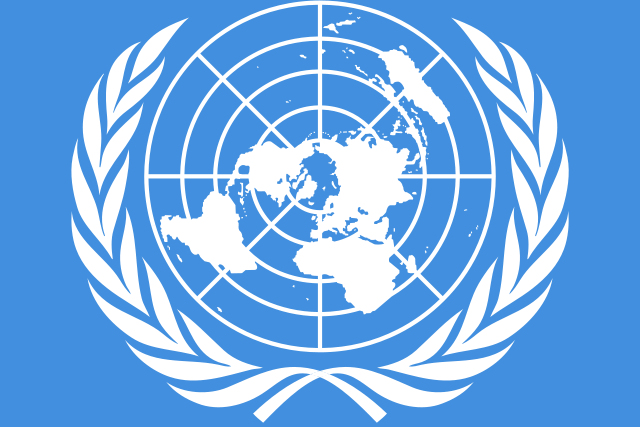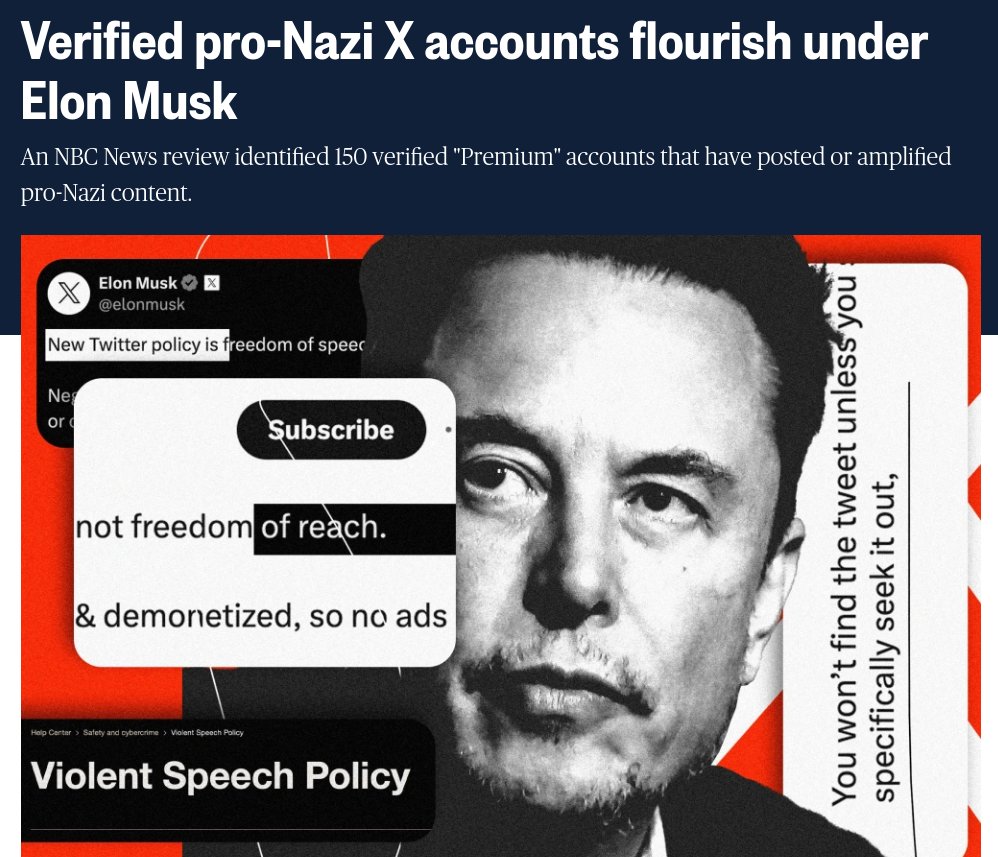Resolution 377 is already in effect, enabling the UNGA to sidestep a deadlock (US-Veto) in UNSC. UNGA must floor a resolution for military protection of civilians and aid workers in Gaza. If Israel / US complain, refer them to the ICJ in The Hague, where the ICC awaits the war criminals.


I've asked Grok to analyze my analytics data: 1.) Research suggests your X account may be experiencing shadow banning or algorithmic deboosting, given the low impressions relative to your follower count. 2.) It seems likely that reports from pro-Israeli accounts could contribute to reduced visibility, especially given your pro-Palestinian advocacy content. 3.) The evidence leans toward X handling such reports by reviewing and potentially limiting visibility, which aligns with your observed engagement drop.
This video, published by Hebrew media outlets, quoting the New York Times, shows a clip found on a mobile phone belonging to a paramedic whose body was found in a mass grave containing the bodies of 15 Palestinian Red Crescent paramedics and civil defense personnel killed by Israeli army fire in the Gaza Strip on March 23.
Resolution 377A(V), "Uniting for Peace," is already in effect, enabling the UN General Assembly (UNGA) to address threats to peace when the UN Security Council (UNSC) is deadlocked.
The Hague Group could propose an ES-10 resolution asserting that UNGA assumes UNSC powers in a U.S.-veto-induced deadlock, calling for voluntary military action against Israel.
If Israel or the U.S. complains about its legality, The Hague Group could refer them to the International Court of Justice (ICJ) in The Hague, where the International Criminal Court (ICC) awaits the war criminals.

Since 1948, Palestinians have endured a relentless campaign of violence and oppression that can be described as "death by a thousand pinpricks"—a slow, systematic erosion of their lives, land, and rights through cumulative acts of aggression. This pattern, rooted in the historical dynamics of colonial domination, aligns with the concept of "necrocolonialism," a term that encapsulates the deliberate infliction of death and suffering as a tool of control. The X post by Sarah Wilkinson on April 4, 2025, showing bodies blasted into the sky by a massive Israeli bomb in Gaza, serves as a stark illustration of this violence, but it is only one of many "pinpricks" in a decades-long process of destruction.
The 1948 Nakba marked the beginning of this campaign, with over 700,000 Palestinians expelled from their homes during the establishment of Israel. Village by village, families were displaced, often through massacres like Deir Yassin, where over 100 Palestinians were killed. This ethnic cleansing was not a singular event but a series of "pinpricks" that continued through the demolition of hundreds of villages in the following decades. Each expulsion, each destroyed home, contributed to the broader project of erasing Palestinian presence, a hallmark of necrocolonialism’s focus on death and domination.
Massacres have been a recurring feature of this violence, from Qibya in 1953 to Sabra and Shatila in 1982, and more recently, the 2014 Gaza War, which killed 2,205 Palestinians. The April 2025 bombing of a school-turned-shelter in Gaza City, killing 27, and the explosion depicted in Wilkinson’s X post are part of this pattern. Each massacre, while devastating in isolation, acts as a "pinprick" that accumulates to create a constant state of fear and loss, eroding Palestinian resilience over time.
Beyond physical violence, Israel’s policies of control have inflicted daily "pinpricks" through arbitrary detentions and prison abuses. Since the 1940s, administrative detention has been used to jail Palestinians without charge or trial, with over 2,200 detained since October 2023 alone. In detention, Palestinians face torture, sexual violence, and humiliation—acts designed to break individuals and, by extension, their communities. The confiscation of sanitary pads from women prisoners and threats of rape are not just physical violations but "pinpricks" that dehumanize and terrorize, aligning with necrocolonialism’s systematic infliction of suffering.
The blockade on Gaza since 2007 exemplifies this slow, grinding violence, restricting access to food, water, and medicine, and creating what Achille Mbembe calls "deathworlds." Combined with the destruction of infrastructure—hospitals, schools, and homes—these policies have led to over 100,000 injuries and the highest rate of child amputees per capita globally. Each restriction, each airstrike, is a "pinprick" that makes life increasingly untenable, serving the necrocolonial goal of control through death and displacement.
The Necromongers from The Chronicles of Riddick, who view life as an error to be purged, offer a chilling metaphor for the dehumanization that enables this violence. While their cosmic ideology differs from the political motivations in Palestine, their disregard for life mirrors the systemic erasure of Palestinian humanity. Necrocolonialism, as a framework, captures this dual reality: the "necro" element reflects the focus on death through massacres, detentions, and torture, while the "colonialism" aspect ties these acts to a historical struggle over land and power, rooted in the Nakba and perpetuated through occupation.
"Death by a thousand pinpricks" thus fits the Palestinian experience, describing a campaign where each act of violence—whether a massacre, a detention, or a restriction—accumulates to create a deathworld. The X post’s image of bodies in the sky is a visceral reminder of the larger "pinpricks," but the quieter, daily abuses are just as deadly in their cumulative effect. Together, these concepts demand a reckoning with the systematic savagery of necrocolonialism, urging the world to name and confront this violence in all its forms.

Since 1948, Palestinians have endured a relentless campaign of violence and oppression that can be described as "death by a thousand pinpricks"—a slow, systematic erosion of their lives, land, and rights through cumulative acts of aggression. This pattern, rooted in the historical dynamics of colonial domination, aligns with the concept of "necrocolonialism," a term that encapsulates the deliberate infliction of death and suffering as a tool of control. The X post by Sarah Wilkinson on April 4, 2025, showing bodies blasted into the sky by a massive Israeli bomb in Gaza, serves as a stark illustration of this violence, but it is only one of many "pinpricks" in a decades-long process of destruction.
The 1948 Nakba marked the beginning of this campaign, with over 700,000 Palestinians expelled from their homes during the establishment of Israel. Village by village, families were displaced, often through massacres like Deir Yassin, where over 100 Palestinians were killed. This ethnic cleansing was not a singular event but a series of "pinpricks" that continued through the demolition of hundreds of villages in the following decades. Each expulsion, each destroyed home, contributed to the broader project of erasing Palestinian presence, a hallmark of necrocolonialism’s focus on death and domination.
Massacres have been a recurring feature of this violence, from Qibya in 1953 to Sabra and Shatila in 1982, and more recently, the 2014 Gaza War, which killed 2,205 Palestinians. The April 2025 bombing of a school-turned-shelter in Gaza City, killing 27, and the explosion depicted in Wilkinson’s X post are part of this pattern. Each massacre, while devastating in isolation, acts as a "pinprick" that accumulates to create a constant state of fear and loss, eroding Palestinian resilience over time.
Beyond physical violence, Israel’s policies of control have inflicted daily "pinpricks" through arbitrary detentions and prison abuses. Since the 1940s, administrative detention has been used to jail Palestinians without charge or trial, with over 2,200 detained since October 2023 alone. In detention, Palestinians face torture, sexual violence, and humiliation—acts designed to break individuals and, by extension, their communities. The confiscation of sanitary pads from women prisoners and threats of rape are not just physical violations but "pinpricks" that dehumanize and terrorize, aligning with necrocolonialism’s systematic infliction of suffering.
The blockade on Gaza since 2007 exemplifies this slow, grinding violence, restricting access to food, water, and medicine, and creating what Achille Mbembe calls "deathworlds." Combined with the destruction of infrastructure—hospitals, schools, and homes—these policies have led to over 100,000 injuries and the highest rate of child amputees per capita globally. Each restriction, each airstrike, is a "pinprick" that makes life increasingly untenable, serving the necrocolonial goal of control through death and displacement.
The Necromongers from The Chronicles of Riddick, who view life as an error to be purged, offer a chilling metaphor for the dehumanization that enables this violence. While their cosmic ideology differs from the political motivations in Palestine, their disregard for life mirrors the systemic erasure of Palestinian humanity. Necrocolonialism, as a framework, captures this dual reality: the "necro" element reflects the focus on death through massacres, detentions, and torture, while the "colonialism" aspect ties these acts to a historical struggle over land and power, rooted in the Nakba and perpetuated through occupation.
"Death by a thousand pinpricks" thus fits the Palestinian experience, describing a campaign where each act of violence—whether a massacre, a detention, or a restriction—accumulates to create a deathworld. The X post’s image of bodies in the sky is a visceral reminder of the larger "pinpricks," but the quieter, daily abuses are just as deadly in their cumulative effect. Together, these concepts demand a reckoning with the systematic savagery of necrocolonialism, urging the world to name and confront this violence in all its forms.

Today I've seen human bodies blasted into the sky like dolls. Genocide falls short of describing this level of savagery. I've asked Grok to come up with a better word. What do you think?
Over the past 24 hours, Israeli occupation forces committed three massacres in northern Gaza. Hossam would have moved from one massacre to the next, documenting every moment. Today, his voice is gone from the scene—but don't let his journey end. Keep talking about Gaza. https://x.com/HossamShabat/status/1908217214936719804
19 martyrs were killed as a result of the occupation forces' bombing of the Al-Aqqad family home in the Al-Manara neighborhood in Khan Yunis. https://x.com/HossamShabat/status/1908057102880215423